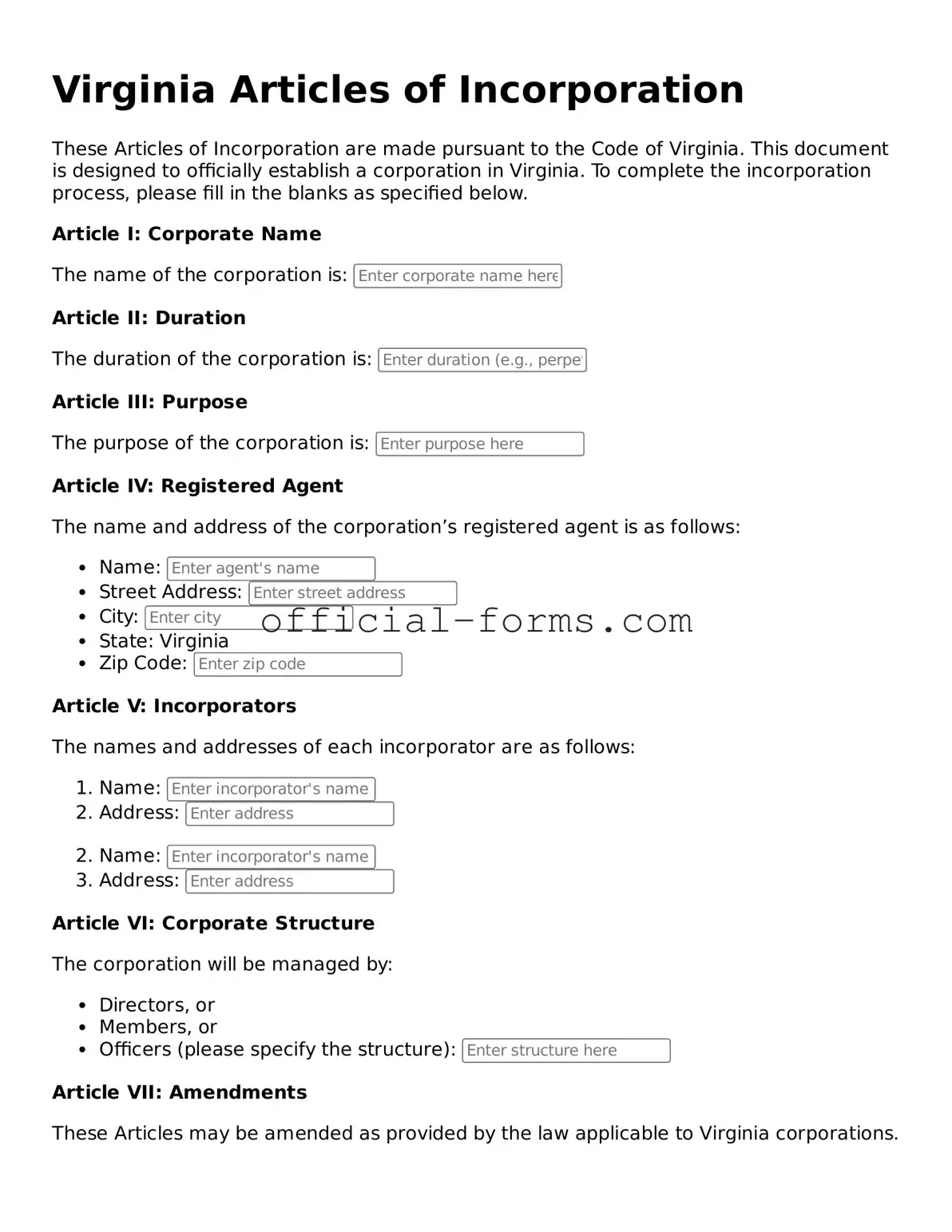Filing the Virginia Articles of Incorporation is a crucial step for anyone looking to establish a business in the state. However, many individuals make common mistakes that can lead to delays or even rejections. Understanding these pitfalls can help ensure a smoother incorporation process.
One frequent error is the omission of essential information. When filling out the form, it is vital to provide complete details about the corporation, including the name, registered agent, and address. Leaving out any required fields can result in the application being returned for corrections.
Another mistake involves choosing an improper name for the corporation. The name must be unique and not too similar to existing businesses. Failing to conduct a thorough name search can lead to rejection, forcing applicants to start over with a new name.
Many people overlook the importance of selecting the right type of corporation. Virginia offers several options, including nonprofit and for-profit entities. Misclassifying the type can have significant legal and tax implications down the line.
Inaccurate information about the registered agent is another common issue. The registered agent must be a resident of Virginia or a business entity authorized to do business in the state. Providing incorrect details can complicate communication and legal processes.
Some applicants forget to include the purpose of the corporation. This section is not just a formality; it defines the scope of the business activities. A vague or overly broad purpose can raise questions during the review process.
Filing fees are often misunderstood. While some may assume that the fee is a one-time charge, it can vary based on the type of corporation and additional services. Not including the correct payment can delay the processing of the application.
Another common mistake is neglecting to sign the form. All incorporators must sign the Articles of Incorporation. A missing signature can halt the entire process, requiring resubmission.
Some individuals fail to understand the importance of providing an accurate number of shares. The Articles must specify the total number of shares the corporation is authorized to issue. Miscalculating this can lead to complications in ownership structure and future fundraising efforts.
Finally, many applicants do not keep copies of their submitted documents. Having a record of what was filed can be invaluable for future reference, especially if questions arise about the incorporation process. Without this documentation, tracking progress and addressing issues can become challenging.

